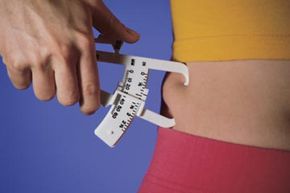If you're a fan of the NBC weight loss show, "The Biggest Loser," you may remember season 11 winner Olivia Ward stating that she joined the competition with the express purpose of improving her chances of becoming pregnant. She had been diagnosed with polycystic ovary syndrome (PCOS), a cause of female infertility that's more common in obese women, and was told by a doctor that she wouldn't be able to get pregnant if she didn't lose weight [source: Prevention]. She was 261 pounds (118.4 kilograms) at the time; she went on to lose nearly half her weight while on the show.
Of course, not everyone can relate to being on national television, but chances are plenty of people can identify with Ward's plight. You see, nearly 34 percent of American adults are obese [source: Centers for Disease Control and Prevention]. And obesity -- which means a person's actual weight is more than 20 percent higher than his or her recommended weight -- is a risk factor for infertility in both women and men [sources: Boyles; Levine].
Advertisement
So it's clear that being heavy can inhibit your fertility. And while you probably won't take Ward's path of shedding weight on camera, you might consider making diet and nutrition changes if your goal is to get pregnant.
To learn more about the relationship between weight and fertility, keep reading.
Advertisement

